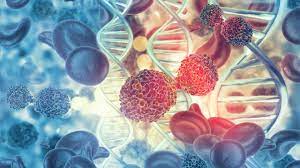04 January 2023 | Wednesday | News

Image Source : Public Domain
Animal data presented in 2022 at the American Society of Gene and Cell Therapy (ASGCT), the European Society of Gene and Cell Therapy (ESGCT) and the World Muscle Congress, showed that the gene therapy outperformed the benchmark therapy along multiple key endpoints in a mouse model of SMA and exhibited much less liver toxicity when administered intravenously. The benchmark therapy uses a vector similar to that used in the only gene therapy approved for SMA. CANbridge sponsored the research and is evaluating the gene therapy to determine potential additional advantages over the current standard-of-care.
In addition, the company announced that it has completed the full technology transfer of gene therapy products being developed for the treatment of Fabry and Pompe diseases from LogicBio® Therapeutics. Under an amended agreement, CANbridge retains an exclusive worldwide license to the products in the Fabry and Pompe gene therapy programs that use the AAV sL65 liver targeting capsid. CANbridge also obtained non-exclusive worldwide rights to the LogicBio proprietary manufacturing process for Fabry and Pompe gene therapies. In addition, the option rights to sL65-based therapies for two additional indications, as well as to LB-001, an investigational treatment for methylmalonic acidemia, in Greater China, which were granted under the original agreement between CANbridge and LogicBio, are removed from the amended agreement.
“The gene therapy we developed with UMass Chan, and to which we now have global rights in the field, holds promise as a potential best-in-class therapeutic for SMA,” said James Xue, Ph.D., founder, chairman and CEO of CANbridge Pharmaceuticals Inc. “As we also add two additional gene therapy programs, for Fabry and Pompe diseases, to our pipeline at the recently opened CANbridge Next-Generation Innovation and Process Development Facility, in Burlington, Mass, we look forward to developing potential best-in-class gene therapies for these three rare diseases which currently have limited treatment options.”
“The novel hSMN1 AAV gene therapy vector, consisting of the endogenous SMN1 promoter and codon-optimized hSMN1, has a remarkably improved potency and safety profile as compared to the benchmark vector, holding great promise for further clinical development,” said Guangping Gao, PhD, the Penelope Booth Rockwell Professor in Biomedical Research, professor of microbiology & physiological systems, director of the Horae Gene Therapy Center and co-director of the Li Weibo Institute for Rare Diseases Research. “We feel confident in CANbridge’s ability to develop this gene therapy for spinal muscular atrophy, which could help more patients and families suffering from this devastating disease.”
© 2026 Biopharma Boardroom. All Rights Reserved.